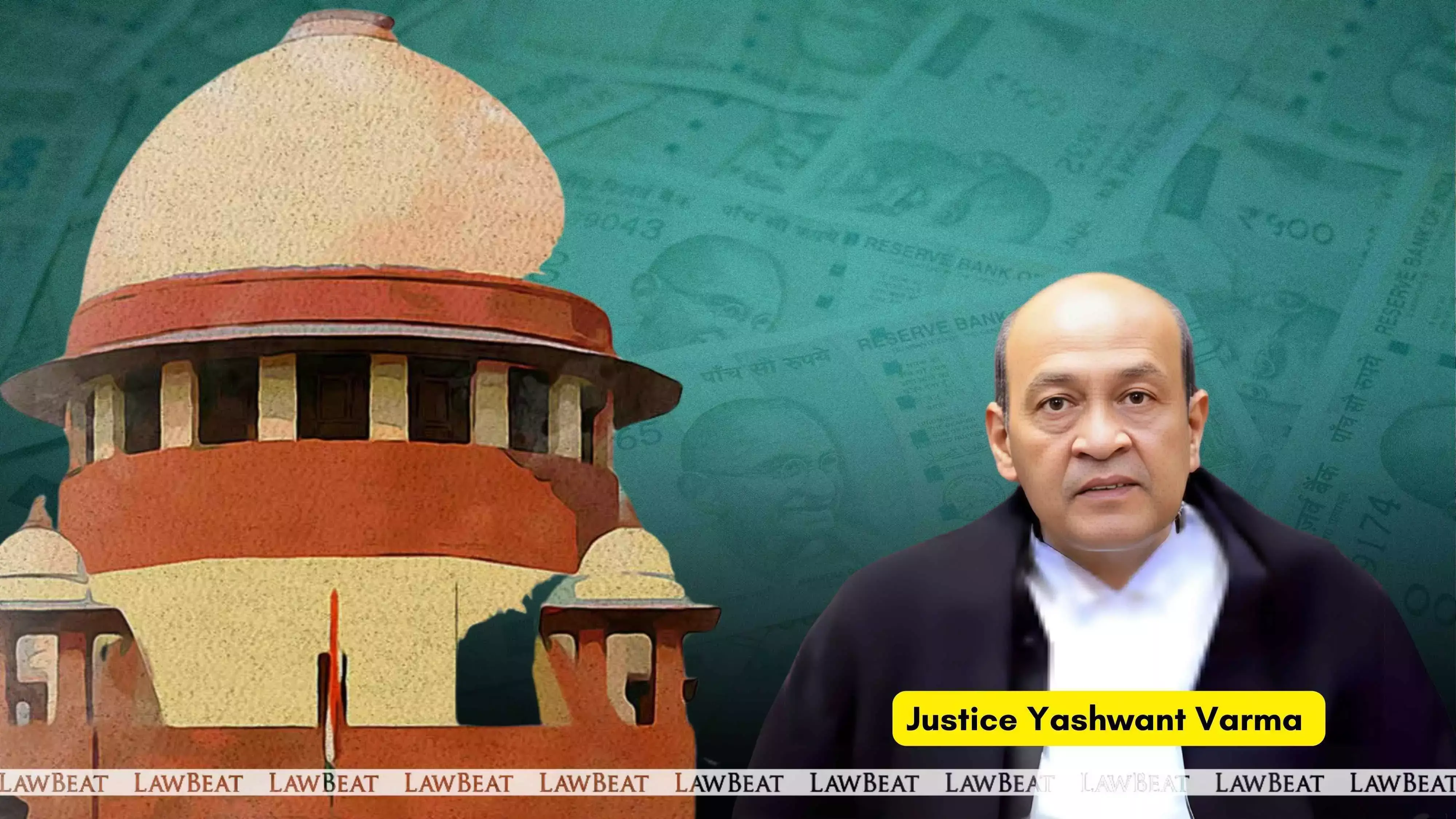SC Dismisses Justice Yashwant Varma’s Plea Against Removal Recommendation in Burnt Cash Row

Supreme Court dismissed Justice Yashwant Varma’s plea challenging the Lok Sabha Speaker’s decision to admit a removal motion and constitute an inquiry committee under the Judges (Inquiry) Act, 1968
The Supreme Court on Thursday dismissed the writ petition filed by Justice Yashwant Varma challenging the findings of an in-house inquiry committee and the recommendation made by the then Chief Justice of India (CJI) for his removal from office over alleged misconduct connected to the discovery of burnt currency notes at his official residence.
The Bench of Justice Dipankar Datta and Justice A.G. Masih delivered the verdict, holding that the petition did not merit interference.
Justice Datta, while pronouncing the judgment, clarified that none of the observations made by the Court would prejudice any future proceedings the petitioner might face.
The Bench framed six questions for consideration, and gave the following rulings:
1. Maintainability: The Court held that the conduct of the petitioner did not inspire confidence. As a result, the writ petition was not entertained.
2. Challenge to Procedure: The Court rejected the petitioner’s argument that Paragraph 5 of the in-house procedure violates Articles 214 and 217 of the Constitution, calling the challenge "without merit."
3. Alleged Procedural Deviations: The Court found no deviation in the process adopted by the CJI or the inquiry committee, barring the non-uploading of video recordings, which, it noted, was never raised as a grievance.
4. CJI’s Role Under Para 7(2): The bench ruled that the Chief Justice forwarding the inquiry report to the President under Paragraph 7(2) was not unconstitutional.
5. Right to Personal Hearing: The Court dismissed the contention that the petitioner was denied a personal hearing, observing that the procedure did not require one.
5. Relief Sought: The writ petition was dismissed in full.
Additionally, the Court dismissed a separate plea by Advocate Mathews J. Nedumpara seeking registration of an FIR against Justice Varma.
Notably, on July 30, the Bench had reserved its verdict on Justice Yashwant Varma’s plea. The Bench had posed pointed questions to Justice Varma, observing that his conduct “does not inspire confidence” and had asked why he had appeared before the in-house panel without contesting its jurisdiction or procedure at the outset. “Why didn’t you challenge the committee then and there? Why come now?,” the Bench had asked, remarking that a delay in contesting the inquiry undermines the credibility of his claim.
During the same hearing, the Apex Court also reserved its order in a separate plea filed by Advocate Mathews J. Nedumpara, who sought the registration of an FIR against Justice Varma. Justice Datta questioned Nedumpara on whether he had even approached the police before moving the Supreme Court.
It is to be noted that on July 28, Sibal had argued that a judge’s conduct cannot be subjected to public discussion unless a formal motion for impeachment has been moved in Parliament. Defending Justice Varma's plea challenging the in-house committee’s report recommending his removal, Sibal had contended that the release of tapes, media coverage, and public commentary on the matter violated constitutional safeguards and undermined the dignity of judicial office. Sibal had also criticised the widespread media coverage that followed the release of a video on March 22 allegedly linked to the case, stating, “The judge’s conduct can’t be subject to public debate before the constitutional threshold is crossed. He has already been convicted in public discourse.”
Earlier, on July 24, CJI BR Gavai had recused from hearing Justice Varma's plea. The Supreme Court had earlier declined to order an FIR, asking petitioners to await the committee’s findings. Even after the report was allegedly submitted, reportedly indicting Justice Varma, no FIR was registered, prompting the current petition.
The previous petitioners were also advised to approach the President and Prime Minister. While representations were made, the plea states there has been no response or directive to investigate, despite the gravity of the incident.
In May, the Central Public Information Officer, Supreme Court of India had refused to provide information in an RTI application seeking copy of the inhouse inquiry report against Justice Yashwant Varma. The RTI also sought copy of the letter sent by then CJI Sanjiv Khanna to the Prime Minister and President of India.
Case Title: XXX v. Union of India along with Mathews J. Nedumpara v. Supreme Court of India
Pronouncement date: August 7, 2025
Bench: Justice Dipankar Datta and Justice AG Masih
